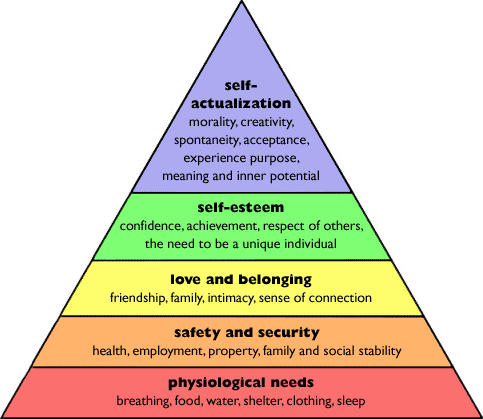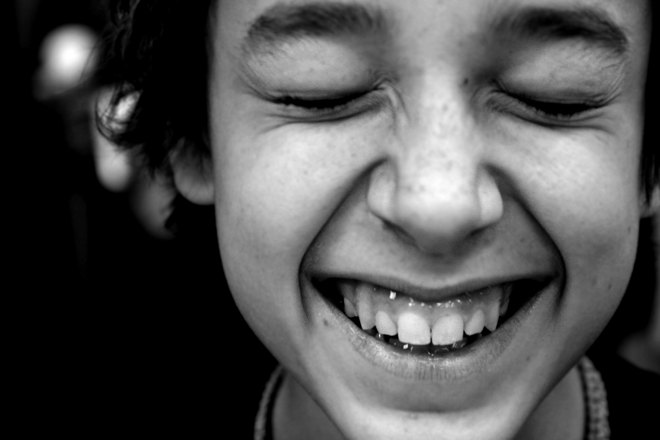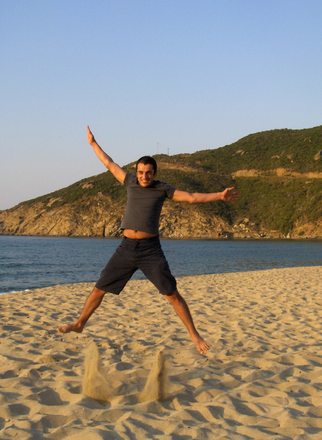If you could take one thing onto a desert island what would it be? A favourite book? A musical instrument? A hammock…sunscreen…a knife? These are all pretty common suggestions.
Let’s consider the functions of these items for a moment. A knife will help build shelter and fires, catch and prepare food and will even help to make other tools. Sunscreen will help keep you safe from the sun. A hammock is obviously for sleeping in (you could also arguably use it as a net to catch fish).
Below is Maslow’s infamous diagram illustrating his ‘Hierarchy of Needs’. This diagram attempts to categorise our needs and places them in sequence. The argument is that people find it hard to reach the upper echelons of need unless the lower needs are first met.
A hammock, knife and sunscreen all help to meet the needs of the lowest two sections on the diagram. Ultimately they have the potential to directly improve your chances of survival.
Books and music on the other hand seem a little useless from a hardnosed survivalist perspective…they are not nutritious and don’t taste great. They are not typically associated with procuring or preparing food, they don’t increase your safety (granted a swift swipe of a guitar might fend off certain predators in the short term but it is not its typical use) or meet any of our physiological needs.
So what point do they serve…and why are they two of the most common responses? The answer is clearly and simply for entertainment. Whilst we are hardwired for survival, when we think of what is important to us, our happiness is right near the top of the list.
Over the coming months within Liaise, we will be driving this message forwards with a passion…our service users need more than just safety, more than just nutrition and hydration, more than just activity rotas and communication aids. They NEED happiness. Maslow’s Hierarchy of Needs has a lot going for it (I personally am incapable of being happy when I am hungry) and so these lower needs are important, but they are not the end goal we are aiming for. We need to aim higher up on the diagram; Happiness is our goal.
It is generally pretty accepted that people with Autism lead lives that can be filled with heightened and prolonged stress and anxiety. Surely this must impact their health every bit as much if not more than stress affects ‘neurotypical’ health. So happiness must be even more important for their health than it is for our own.
This is why we need books, and guitars, and games, and each other. It is all about happiness. So when you are next recording what someone ate, how much sleep they got, how they communicated their frustration, consider also recording what made them smile, what made them laugh, and what made them HAPPY.








